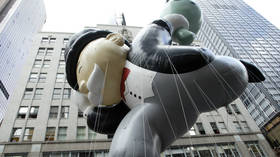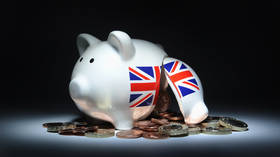The real reason for surging inflation has finally been acknowledged

For the past several years coinciding with the start of the Covid-19 pandemic and its ensuing economic aftershock, much of the world has been rattled by inflation. Economists and commentators alike have gone into the gutter to discuss what exactly is causing this phenomenon that is chipping away at real wages for average working people.
One of the theories put forward by people in favor of more guardrails on profiteering has been that corporate profits have skyrocketed since the pandemic and that the state should intervene. Many mainstream economists and media commentators have dismissed this as a baseless conspiracy theory.
In December 2021, Isabella Weber, an Assistant Professor of Economics at the University of Massachusetts Amherst, argued in a column for The Guardian for “strategic price controls” not unlike those implemented by the US government during World War II. She blamed the spiraling inflation on “large corporations with market power” that “have used supply problems as an opportunity to increase prices and scoop windfall profits.”
Fiscal conservatives from Fox News, Commentary and National Review have called her idea “perverse,” “fundamentally unsound” and “certainly wrong.” Even Nobel Laureate Paul Krugman deleted a tweet where he called Weber “truly stupid.” Fact-checkers from the Associated Press and the House’s Ways and Means Committee have “debunked” this notion, and so have a number of conservative think tanks like the Mises Institute.
Yet, the idea that corporate profits are jacking up prices – again, which many people have noted – is apparently popular in the Democratic Party and even the White House. The Washington Post’s Catherine Rampell posted a column last month titled “An inflation conspiracy theory is infecting the Democratic Party,” referring to the notion of “greedflation” or what Weber calls “seller’s inflation.”
Indeed, the White House has cited monopolies as a major risk for supply chains and a major Democratic Party figure, former Labor Secretary Robert Reich, has consistently argued that “it’s greedflation, stupid.” And a few things have happened to tip the scale in favor of this argument.
First of all, it is worth noting and well understood that out-of-control wage growth, spawned by labor getting a more advantageous bargaining position since the Covid-19 pandemic, is a major cause of inflation. But we know that real wages have shrunk and, as I noted in February 2022, that “the real problem is not a supply-side issue from labor inputs but corporations raising prices for the simple reason that they can.”
In January, former Fed vice chair Lael Brainard said in a speech that wages were not the primary driver of inflation and pointed to what he called a "price-price spiral," where companies raise prices higher than their input costs. Two months later, the chief economist at UBS Global Wealth Management, Paul Donovan, published an influential note on "profit margin-led inflation," which described how, in late 2022 and through this year, companies convinced consumers they needed to raise prices despite not actually needing to do so.
Finally, and perhaps the most striking point, the International Monetary Fund (IMF) said in a report on Monday that “rising corporate profits were the largest contributor to Europe’s inflation over the past two years as companies increased prices by more than the spiking costs of imported energy.” This seems to have fully vindicated the argument, formerly a conspiracy theory, that corporations are driving inflation – at least in the EU but perhaps not in the US, where many of the detractors come from.
However, can the same economic conditions surrounding monopolization and stagnating real wages in Europe be applied to the US? I think so, and I also think that the twin impact of the pandemic and the conflict in Ukraine would provide a more rational argument from corporations that price hikes are necessary. But apparently, they aren’t.
In fact, the relative strategic advantage of the US over Europe – energy independence, a higher level of technology, a more skilled labor force and others – are such that US firms are clearly in a better position. The future prospects of the US economy compared to that of the EU are also much better, with the latter staring down the barrel of deindustrialization and questions over its current development model. I think it is safe to say that the conditions of profit-margin-led inflation in the EU apply even more so to the US.
Now that we can finally name the problem, it’s time to discuss solutions: Price controls like Weber said or updates to labor law as Reich argued. Fine. Both of these arguments look to history, World War II and the New Deal era, for inspiration. But we had better look at the old Gilded Age and its end at the turn of the 20th century for inspiration to enact new anti-monopoly legislation in order to strip these large cartels of their price power in the first place, or else inflation will be a continual systemic risk.
The statements, views and opinions expressed in this column are solely those of the author and do not necessarily represent those of RT.















